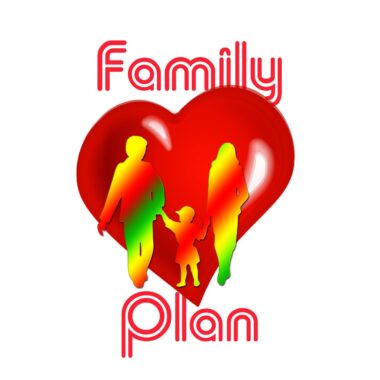The Importance of Open Communication in Family Wealth Planning
Effective wealth management hinges on the core principle of open communication among family members. This practice fosters trust and understanding, ensuring everyone involved comprehends their roles within the family’s financial ecosystem. By encouraging discussions about financial goals, values, and expectations, families can navigate complexities in wealth management more effectively. The dialogue can serve to highlight individual aspirations, aligning them with the family’s collective objectives. Furthermore, discussing wealth openly can help dispel myths that often arise due to lack of clarity, diminishing misunderstandings that could lead to disputes or feelings of inequity. To achieve these aims, it may be beneficial for families to set regular meetings for wealth discussions. These sessions can be structured to cover various aspects, such as investments, estate planning, and charitable giving. Creating an inclusive environment ensures that all voices are heard and valued, reinforcing that wealth planning is a collaborative effort, not an isolated activity. Families must understand that each member’s perspective is vital to fostering strong relationships and making informed decisions about current and future wealth management strategies.
Wealth planning shouldn’t be a one-off situation; rather, it requires ongoing communication over time. As family members grow and financial situations evolve, the family’s wealth management needs will adapt as well. Regular updates help everyone stay informed and involved, reinforcing a sense of agency among family members. It’s particularly important to engage younger generations early in these discussions. This engagement fosters financial literacy and ensures they’re equipped to make educated decisions when they inherit wealth. Furthermore, open lines of communication can help bridge generational gaps that may exist within the family regarding financial priorities and spending habits. As a family grows and diversifies, so too does the complexity of their wealth situation. Addressing potential areas of contention, including varying opinions on investments and risk tolerance, can be accomplished through transparent discussions. Moreover, technology can play a significant role in facilitating these discussions. Utilizing video calls and dial-in family discussions encourages participation from those who may be geographically separated, ensuring everyone is included in crucial conversations pertaining to family wealth
Utilizing Professional Guidance
Involving professional advisors in family wealth planning can enhance communication efforts significantly. Skilled wealth management professionals can serve as neutral parties who facilitate conversations amongst family members. Their expertise helps families articulate their financial situations and future goals more effectively. Moreover, these professionals can serve as educators, providing valuable insights into complex legal and financial matters, ensuring everyone has a fundamental understanding of the situation. This third-party perspective can help provide clarity and understanding, reducing the potential for conflicts that might arise during discussions. Additionally, professional advisors can offer tailored strategies that consider family dynamics and individual objectives. By creating a roadmap with the guidance of professionals, families can see the bigger picture and understand how their diverse financial aspirations align. It’s essential for families to communicate any changes in personal circumstances honestly with their advisors to refine these strategies over time. Regular check-ins with advisors help families maintain focus on their goals and make necessary adjustments. Emphasizing this collaborative relationship can also instill a higher level of confidence in family members regarding their financial futures and management practices.
Finally, documenting family wealth planning discussions is crucial. This documentation serves multiple purposes: it provides a point of reference for future conversations, clarifies agreements made during discussions, and offers insight for family members who may be absent. Written records can strengthen commitments within the family and reinforce the intent behind decisions made. As wealth management often involves sensitive topics, documentation ensures all voices are considered and contributes to an environment of accountability. Families can consider creating a formal family governance document that details their financial objectives, roles, and communication protocols. This living document should be revisited and adjusted regularly to reflect any changing dynamics. Additionally, including input from younger family members in these documents empowers them, making them feel an integral part of the family’s financial story. Using inclusive language and emphasizing shared goals can reinforce unity among family members during the wealth planning process. In summary, maintaining these detailed records enriches family dialogue and supports lasting legacies that honor generational values. Consistent updates to the documentation can foster a culture of inclusiveness and transparency.
The Role of Values in Communication
In family wealth planning, the conversation should extend beyond just financials to include values and beliefs regarding wealth. By discussing core financial values, families create a framework that allows for integrity and purpose to guide decisions. This deeper level of communication helps family members understand not only the what but the why behind their wealth management strategies. Engaging in discussions about values assures that a family legacy aligns with their vision and institutionalizes shared beliefs across generations. For instance, some families place a high value on philanthropy, while others may prioritize wealth preservation or investment for growth. Documenting shared values can serve as a vital reference point when families face critical decisions that may challenge their principles. Open communication about these values can also reinforce relationships among family members, bolstering support networks when navigating tough discussions. Additionally, having a clear value framework can help mitigate conflicts that might arise due to differing opinions on wealth distribution or investment strategies. Ultimately, ensuring that wealth management aligns with family values strengthens the foundation for cohesive multigenerational planning.
It’s also imperative for families to establish appropriate communication channels that facilitate open dialogue. This may include regular family meetings, anonymous surveys for feedback, or even one-on-one discussions. These channels cater to different personalities within a family, ensuring everyone feels comfortable expressing their opinions. Utilizing modern communication tools, such as group chats or dedicated family forums, can enhance engagement among younger family members who may prefer digital formats. Families will benefit from applying varied techniques to solicit input, as such diversity encourages participation. Open communication channels signify to family members that their views are valued, reinforcing a cohesive family culture. Moreover, the ability to voice concerns will cultivate an environment of trust, whereby all members can feel secure in their discussions. When faced with sensitive issues, this sense of security is invaluable. To further enhance understanding among members, families can consider implementing decision-making frameworks to address how conclusions are reached during discussions. Clear protocols ensure that consensus is sought and that every voice is considered, ultimately strengthening family bonds while managing their wealth.
Conclusion: A Unified Family Approach
In conclusion, fostering open communication is essential in multigenerational wealth planning. It empowers family members to express their values and opinions around wealth while reinforcing trust and unity. Families who prioritize ongoing dialogue are more equipped to address complex challenges that arise in wealth management. The incorporation of professional advice enhances this process by providing clarity and unbiased support. Additionally, documenting discussions around values and goals ensures that all members feel included and accountable. Establishing dedicated communication channels further enhances engagement, encouraging participation from all members, particularly younger generations. By adopting a unified approach to family wealth management that values perspectives and prioritizes conversation, families can create a sustainable financial future. Encapsulating a shared vision within the family wealth management strategy fosters stronger bonds and connectedness. Ultimately, the act of engaging in open dialogues about wealth not only strengthens family ties but also lays a foundation for generational wealth that reflects family values and aspirations for years to come. Families should strive to maintain these conversations, adapting and evolving as circumstances change.
To summarize, wealth management requires a commitment to transparent communication and collaboration among family members. This communication is vital for making informed decisions as a family, fostering a sense of shared responsibility regarding family wealth that will carry through generations. Emphasizing the significance of regular updates strengthens the family’s collective financial literacy and nurtures a culture of respect and understanding. By fostering open channels for communication and documenting the family’s ongoing wealth conversations, families can navigate complexities with confidence. The journey of wealth management is one that reflects not just financial capabilities but also a family’s beliefs and values. Committing to this process cultivates stronger connections, ultimately leading to a more synergistic financial future. Regularly revisiting and aligning on goals ensures unity in purpose, which is essential for successful multigenerational planning. Communicating values and expectations openly will empower younger generations and facilitate a smoother transition of wealth. By ensuring everyone engages actively in this process, families can enhance their wealth management efforts and foster strong relationships centered around mutual respect. Through these channels of communication, families can build a legacy that honors their past while securing their future.





